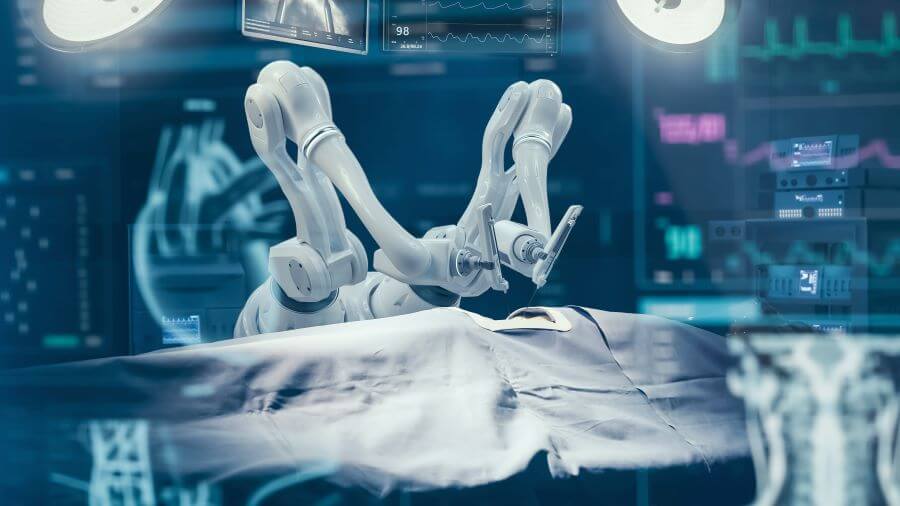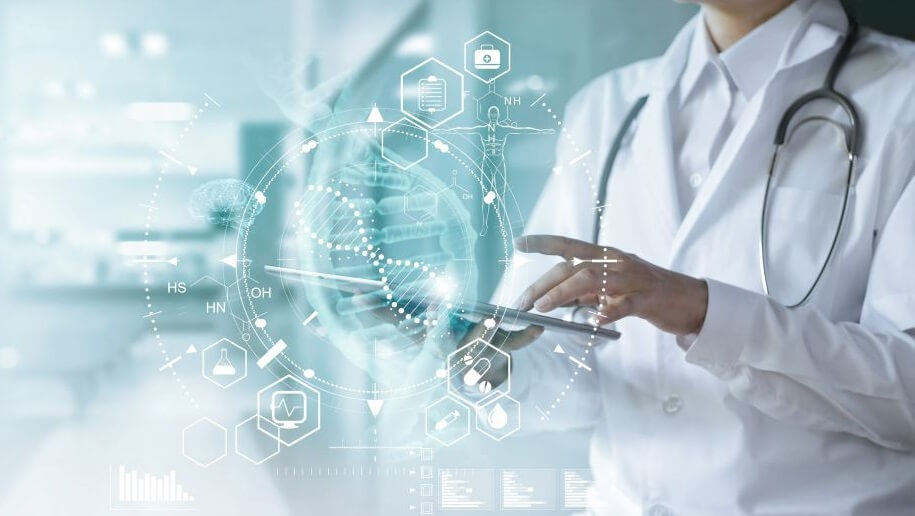The rapid pace of technological innovation has brought about a new era in healthcare, profoundly changing how medical care is delivered and significan
The rapid pace of technological innovation has brought about a new era in healthcare, profoundly changing how medical care is delivered and significantly improving patient outcomes. From the rise of telemedicine to the advancements in robotic surgery and dental implants, cutting-edge technologies are enhancing the efficiency of medical procedures while offering more personalised and effective care to patients.
Telemedicine: Expanding Patient Access to Healthcare
One of the most transformative developments in modern healthcare is the widespread adoption of telemedicine, which has revolutionised the way patients access medical services. With telehealth, individuals can consult with healthcare professionals from the comfort of their own homes, eliminating the need for travel and making healthcare services more accessible, especially for those living in rural or remote areas.
Telemedicine has proven to be invaluable in managing chronic illnesses, conducting follow-up appointments, and providing initial consultations. By allowing healthcare providers to monitor and engage with patients virtually, telemedicine has ensured that care continues seamlessly, even in cases where in-person visits are not feasible. This advancement has been particularly beneficial for individuals with mobility issues or those who require frequent consultations but face logistical challenges in traveling to healthcare facilities.

Artificial Intelligence: Revolutionising Diagnosis and Treatment
Artificial intelligence (AI) is playing an increasingly critical role in modern healthcare by improving diagnostic accuracy, predicting patient outcomes, and personalising treatment plans. AI-powered algorithms can analyse vast amounts of data much faster and more accurately than human analysis, enabling healthcare providers to make better-informed decisions.
AI is especially impactful in imaging diagnostics, where it can detect subtle abnormalities in scans that the human eye might miss. This capability allows for earlier and more accurate diagnoses of conditions such as cancers, cardiovascular diseases, and neurological disorders. By improving early detection, AI has the potential to save lives and improve patient outcomes by allowing for more timely interventions.
Additionally, AI-driven predictive models help anticipate patient outcomes, enabling healthcare teams to adjust treatment plans in real time. This level of personalised care improves both the effectiveness of treatments and the overall patient experience.
Precision Medicine: Tailoring Treatments Through Genetic Testing
Genetic testing has become a cornerstone of precision medicine, an approach that customises treatments based on an individual’s genetic makeup. This personalised method has been especially transformative in oncology, where targeted therapies are developed to attack specific genetic mutations within cancer cells.
By tailoring treatments to the unique genetic profile of each patient, precision medicine improves the efficacy of therapies while minimising side effects. In turn, this leads to better outcomes, shorter recovery times, and a higher quality of life for patients undergoing treatment for complex diseases like cancer. The ability to design personalised treatment plans also allows for a more proactive approach to preventing and managing diseases, further enhancing patient care.
Surgical Technology: The Rise of Robotic-Assisted Surgeries
Robotic surgery has transformed the landscape of surgical care, offering greater precision, control, and flexibility to surgeons. Technologies such as robotic-assisted surgery enable minimally invasive procedures that result in smaller incisions, less pain, and faster recovery times for patients.
This technological advancement has expanded into a range of surgical specialties, including orthopedics, urology, and neurosurgery. By improving the accuracy of surgical procedures, robotic surgery reduces the risk of complications and enhances patient outcomes. Patients benefit from shorter hospital stays, quicker return to normal activities, and lower rates of post-operative pain.
All-On-4 Dental Implants: Revolutionising Dental Care
Technological innovations in dental care have also made significant strides, particularly in the area of all-on-4 dental implants (full-mouth dental implants). For patients who have experienced severe tooth loss, all-on-4 dental implants offer a permanent, durable, and aesthetically pleasing solution. These implants not only improve the appearance of the smile but also restore full oral functionality, allowing patients to chew, speak, and eat with ease.
Full-mouth dental implants utilise advanced imaging techniques, such as 3D mapping and Cone Beam Computed Tomography (CBCT) scanning, to design implants that are customised to fit each patient’s unique oral structure. The implants are made from high-quality, biocompatible materials that mimic the function and appearance of natural teeth, significantly enhancing both the patient’s oral health and self-confidence.
For many patients, the benefits of full-mouth implants go beyond dental restoration – they provide a renewed sense of well-being, boosting their overall quality of life.
Augmented and Virtual Reality: Enhancing Patient Experience and Education
Augmented reality (AR) and virtual reality (VR) are increasingly being integrated into healthcare to improve patient experience and education. These technologies offer immersive tools that help patients better understand their treatments and medical conditions, reducing anxiety and improving their satisfaction with the care they receive.
In addition to education, AR and VR are being used in surgical planning, allowing surgeons to visualise complex procedures before entering the operating room. This improves precision and outcomes, while also enhancing the surgeon’s ability to communicate the procedure’s steps and potential outcomes to the patient.
The Future of Healthcare: Continuous Technological Advancements
The intersection of technology and healthcare is constantly evolving, creating new possibilities for improving patient care and outcomes. As innovations like AI, genetic testing, telemedicine, and robotic surgery continue to advance, the quality of care provided to patients will only improve.
Furthermore, as new dental technologies such as full-mouth implants and cutting-edge imaging tools become more widespread, patients will have access to more effective and personalised treatments that can transform their health and lives. These advancements are not only improving the efficiency of medical procedures but are also enhancing patient satisfaction by providing a higher level of care and more predictable outcomes.
Conclusion
Technological innovations are reshaping modern healthcare, making it more accessible, precise, and personalised than ever before. From telemedicine and AI to genetic testing and full-mouth dental implants, these advancements are improving both the efficiency of medical procedures and the outcomes experienced by patients. As these technologies continue to evolve, they promise to set new standards in patient care, ensuring that individuals receive the highest level of medical attention, comfort, and quality of life.



















































































































COMMENTS